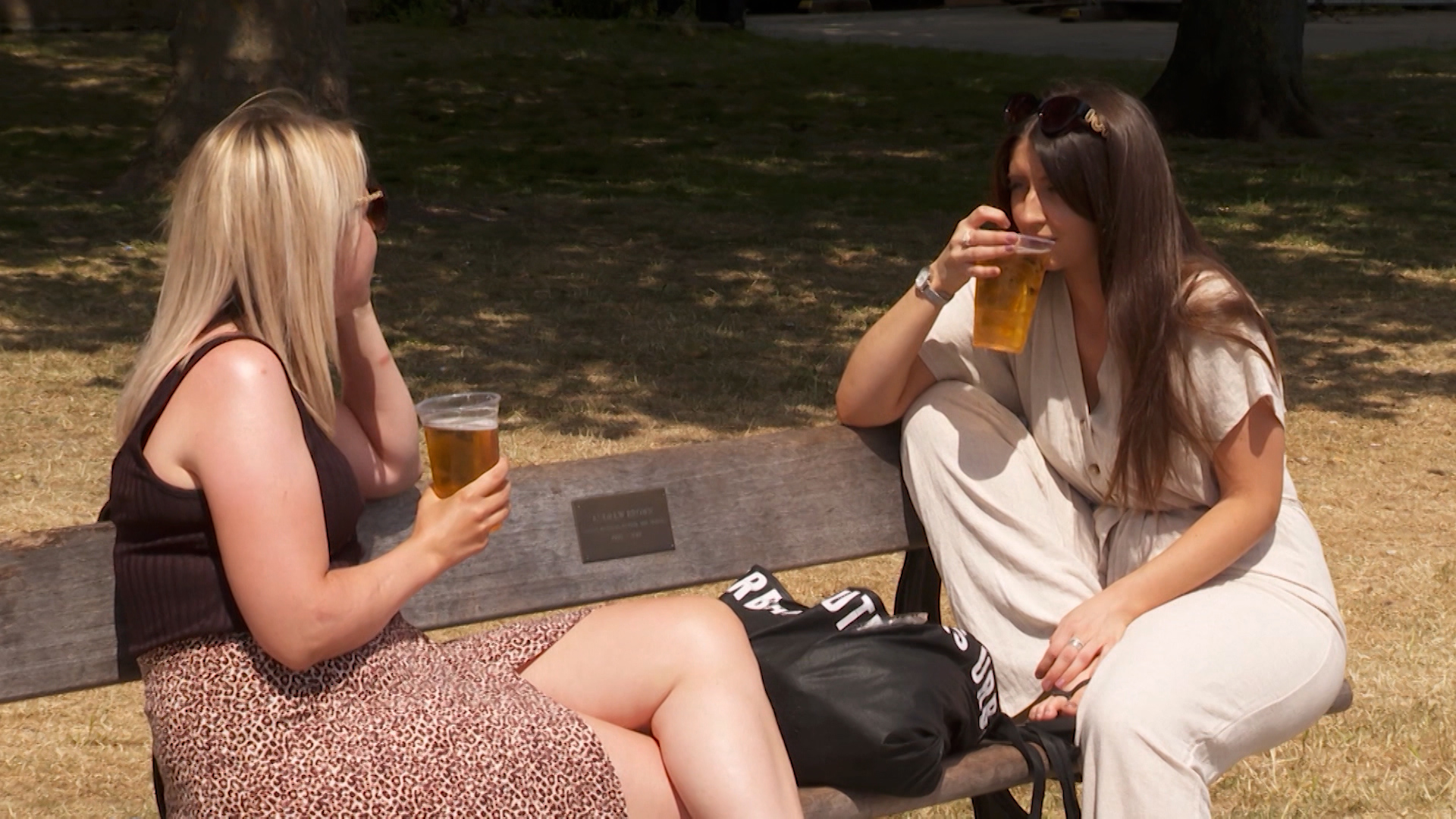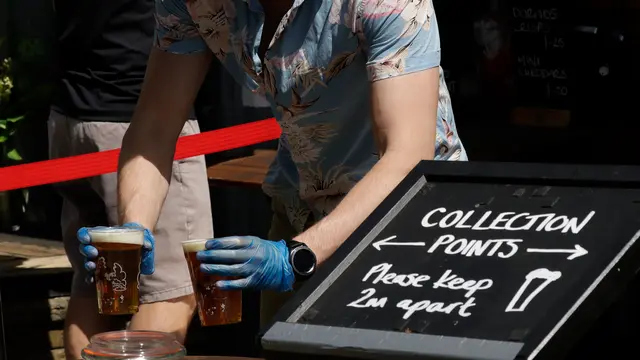02:37

The recent heatwave in the UK was arguably the perfect setting for that great British institution: the pub.
"We all love the great British pub," said Emma McClarkin, CEO of The British Beer and Pub Association (BBPA). "It is one of the top three things to do in the UK."
Due to the lockdown imposed to fight the COVID-19 pandemic 47,000 drinking establishments in Britain closed their doors overnight in March.
"This is the biggest crisis to ever face our industry in its history. We are surviving through this period of closure with government help, but we won't be able to sustain that for a long period of time," McClarkin said.
READ MORE:
How will socially distanced nightclubs run?
Now, resourceful landlords are tapping in to what their customers want. While pubs in Britain are not due to reopen until later this month at the earliest, some punters have found a way to sneak a cold pint from takeaway counters and pop-up stalls.
While that may quench the thirst of some drinkers, it might not be enough to save a struggling sector.
"We have done a survey of our members and 40 percent said they would not be able to survive until September," noted McClarkin. "That is a stark statistic and we need to make sure we can find a pathway to open our pubs so we don't lose those pubs forever."
McClarkin warned that 40 percent of the sector amounted to the closing of 10,000 pubs, with the loss of 100,000 jobs.
The pandemic has hit the beer and pub sector hard – an industry already grappling shifting consumer habits, increased taxes and wage increases for staff.

Those pubs that are operating as takeaways are still acting in accordance with social distancing rules. /AP Photo/Matt Dunham
Desperate to stem the losses of lockdown, some establishments have switched from being pubs to hubs, providing vital services to their neighbourhood.
"This is not a pub anymore, it is a corner shop – with takeaway drinks, takeaway food, we are serving the local community with all their daily essentials," said Sahas Tandon, manager at The Duchess Pub in Chiswick, West London.
Inside The Duchess, chairs and tables were stacked high, the spirits shelves cleared and the beer pumps inaccessible, wrapped as they are in plastic film.But Tandon has transformed the restaurant area of the pub into a mini-mart, stocking tea, coffee, flour, snacks and a host of everyday essentials.
"The regulars don't want to queue for 40 minutes at the Co-op. Here they can get their milk and eggs. And for drinks on a nice day, we have people queuing around the block – with two-meter distancing, of course."
The Duchess has diversified further, selling plants and offering a takeaway meal service for traditional Sunday roast dinners.
READ MORE:
Coronavirus: UK travel quarantine rules come into effect
"The corner shop has been a big success, but we don't see it as the future, we hope to get back to normal to be honest because the UK is all about the great British pub."
Tandon said it was hard to imagine pub life will be the same again. "The owner is already thinking about what changes we will need to make when we can reopen. They are looking at the layout, maybe introducing more table service and I don't think anyone will be able to order at the bar."
Downsizing capacity could give some pubs a hangover they won't recover from.
"The pub is the original social network," said McClarkin. "It is where we go to connect with our friends and so it does provide significant challenges when it comes to social distancing … in the UK we have two-meter social distancing, that would only bring into play about 30 percent of pubs. If that was reduced to the WHO standard of one meter, you are opening up 75 percent. That is significant."
The UK government says it is going as fast as it can to reopen the industry – and major beer producers such as Heineken are reportedly preparing for deliveries to UK pubs in the near future.
Until then, more and more pubs will have to get creative, diversifying their products and finding new revenue streams if they are to avoid calling last orders on their business.
Sign up
here
to get the COVID-19 Europe bulletin sent directly to your inbox
 简体中文
简体中文

